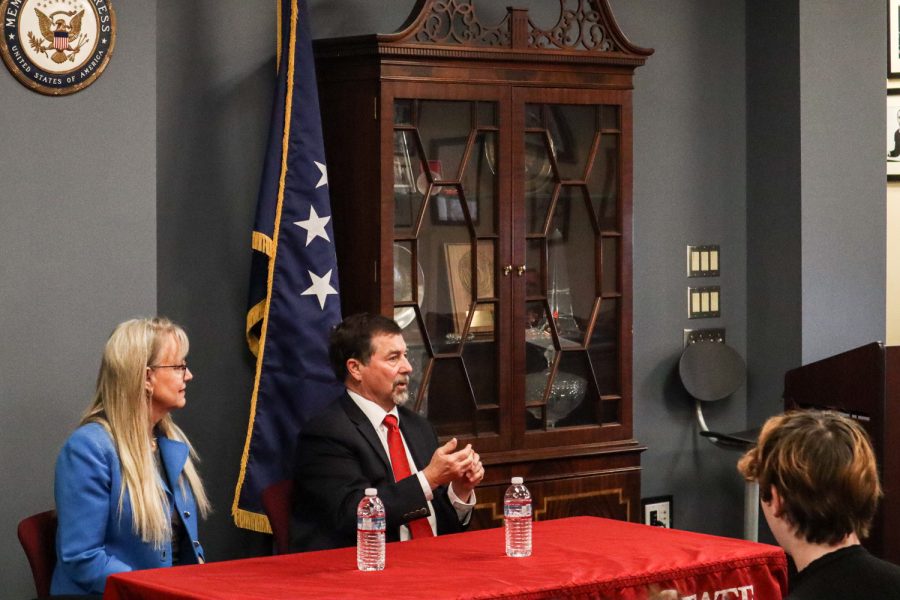At the Thomas S. Foley Institute’s final event of the year on Tuesday, representatives from the ninth legislative district held discussions on how to tackle the impacts of climate change.
Sen. Mark Schoesler and Rep. Mary Dye were the two state legislators who showed up to address questions before to the 2023 legislative session.
While Dye will remain on the appropriations committee, Schoesler said he anticipates being the ranking Republican on the senate budget committee and continuing to serve on the labour and commerce committees.
“The two years of being siloed in our own Zoom meeting wasn’t helping for public policy,” Dye said. “I think people really want to repair some of the damage from being apart.”
Schoesler and Dye both voted “no” on a recent climate change bill meant to limit carbon emissions, which they said has nothing to do with past donations they have received”“This was about the people I represent and their economy,”.
Read also: US commits $75 million to relocate three climate-change threatened tribes
An attendee asked Schoesler if the bill hurts his constituents, many of them farmers, to vote against a bill meant to consolidate the effects of climate change. He said his vote is beneficial to the agricultural community.
Dye said she is looking forward to her second term as a ranking member of the environment and energy committee.
Schoesler also believes issues with affordable housing should be solved with organizations, like Habitat for Humanity, through the private sector. Private sector real estate contributed to his campaign, but Schoesler said his position on affordable housing is separate from that.
“If we look at housing, government housing is slow, cumbersome and overpriced. There are so many people with their beak in the troth getting something and it’s expensive,” he said.
In relation to his position on the current opioid crisis and opinion on the “safe injection” zone in Seattle, where people can freely use illegal substances, Schoesler said he does not support safe injection zones.
“What I think we have to do is revisit the Blake decision,” he said. “I think we got a pretty good block of people who think Blake was wrong. Full legalization is not the answer … It was the dumbest ruling I ever heard of.”
Entering the 2023 legislative session, Schoesler said his main goal for the next session will be organizing the senate budget and doing it in a bipartisan way.
“At this point in my career I want to have something I’m interested in and not just taking up space,” he said.
Despite dangers to American democracy, such as political candidates who advocate “the big lie,” Schoesler said he is optimistic about the future of the nation.
Schoesler asserted that he did not think Loren Culp was the true victor in the 2020 Washington governor race and that some people have lost faith in the electoral process as a result of how simple it has gotten to influence votes in recent years.
Story was adapted from Daily Evergreen.
